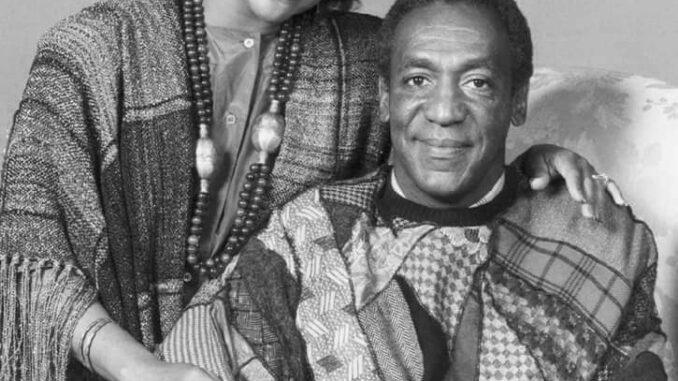
1. Revolutionizing African American Representation
One of the most significant impacts of The Cosby Show was its portrayal of an African American family in a way that had never been done before on primetime television. Prior to The Cosby Show, African American characters on TV were often confined to stereotypical roles—either as servants, entertainers, or individuals from impoverished backgrounds. The Huxtables, however, were depicted as an affluent, well-educated, and loving family.
The show featured Cliff Huxtable (played by Bill Cosby), a successful obstetrician, and Clair Huxtable (played by Phylicia Rashad), a lawyer, as the parents of five children. This portrayal of an African American family that was both loving and financially stable helped challenge prevailing stereotypes about race, class, and family structure in America. It gave viewers of all backgrounds a new way of seeing African American life, one that was aspirational and rich in depth.
2. Normalizing Success for Black Families
By portraying a successful African American family in a positive light, The Cosby Show helped normalize the idea that Black people could succeed in professional careers, have stable marriages, and live in affluent neighborhoods. For many viewers, especially African American audiences, it was a rare and empowering example of success. The show sent the message that success in education, career, and family life was achievable for everyone, regardless of race.
3. Breaking New Ground in Family-Centered Sitcoms
At the time, most sitcoms featured “nuclear” families, but The Cosby Show was exceptional in its ability to blend humor with deeper messages about family dynamics. The Huxtable family was far from perfect, but the show often explored the ups and downs of family life—parenting challenges, sibling relationships, and generational differences—with humor and warmth. It was a fresh approach to family sitcoms, offering not just laughs, but also meaningful life lessons about love, responsibility, and resilience.
4. Blending Humor with Important Social Issues
While The Cosby Show was largely a family comedy, it was not afraid to address serious social issues in a nuanced and accessible way. The show touched on topics like racism, peer pressure, sexism, and the pressures of being a parent, but it did so with sensitivity and humor. For instance, episodes explored themes like the importance of education, the challenges of adolescence, and the balance between work and family life—all with a thoughtful approach that encouraged discussion.
The show was able to tackle these issues without becoming preachy or heavy-handed, using humor and relatable family situations to engage viewers while still offering commentary on the world outside the Huxtable household.
5. The Rise of Bill Cosby as a Cultural Icon
Bill Cosby, as both the star and producer of the show, became an even more influential figure due to The Cosby Show. Cosby was already an established comedian and actor, but the success of the show turned him into a cultural icon, the face of a new era of African American achievement in Hollywood. His charismatic, fatherly portrayal of Cliff Huxtable became a model for a “positive” male role model—someone who was loving, funny, but also wise and responsible.
Cosby’s role in the success of the show extended beyond his on-screen character. As a producer, he worked to ensure the show maintained a level of cultural authenticity and social responsibility. Cosby’s influence reached beyond television and into the broader conversation about race, education, and representation in the media.
6. A High-Profile Success in the “Golden Age” of TV
The Cosby Show aired at a time when television was experiencing a shift towards more sophisticated, socially conscious sitcoms. In the 1980s, sitcoms like The Cosby Show and Family Ties helped redefine what family-oriented comedy could look like. The Huxtables were more than just a sitcom family; they became cultural symbols of progress and change. The show’s success helped pave the way for more diverse family sitcoms, including later hits like A Different World, which was a spin-off of The Cosby Show.
The show also set new standards for primetime TV ratings and advertising revenue. It was one of the first shows to attract a broad, diverse audience while also becoming a critical and commercial success, proving that shows with positive portrayals of African American families could thrive in mainstream American television.
7. Legacy and Long-Term Impact on TV Programming
Beyond its initial success, The Cosby Show‘s legacy can still be seen in modern television. Many current sitcoms and dramas continue to draw inspiration from its family-centric storytelling and its commitment to portraying complex, diverse characters. Shows like Black-ish, The Fresh Prince of Bel-Air, and even The Middle can trace some of their thematic and narrative roots to the foundation laid by The Cosby Show.
8. Changing Perceptions of African American Excellence
The Cosby Show was part of a broader cultural movement that shifted perceptions of African American excellence in the 1980s and 1990s. It was an affirmation of the idea that Black people could be portrayed in positive, empowering roles without being defined solely by their race or circumstances. It opened doors for more African American-centered programming and helped diversify the types of roles available to Black actors.
In summary, The Cosby Show was influential not just as a sitcom but as a cultural milestone. It changed the way television portrayed African American families, challenged stereotypes, and offered viewers a new vision of what success, family, and happiness could look like. Its influence continues to be felt in how we think about race, representation, and the potential of television as a tool for social change and positive cultural shifts.